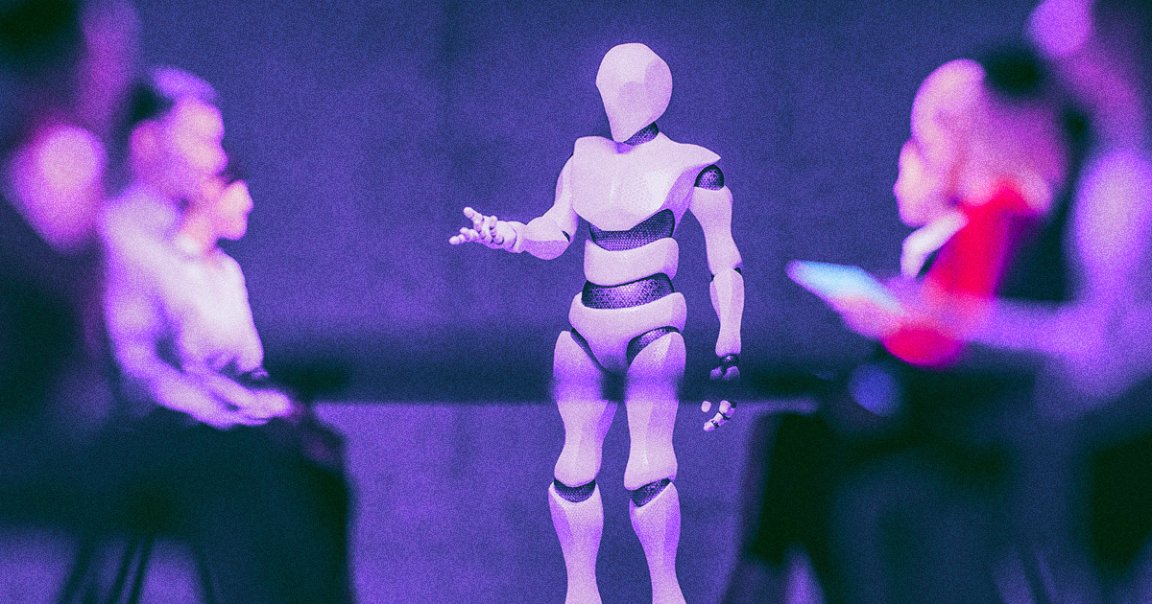
Could’ve Been an Email
Hate showing your face in meetings? If one AI CEO has his way, you might not have to anymore.
As Otter CEO Sam Liang — whose AI startup offers transcription and automated note-taking services — told Business Insider, he believes a “working prototype” of an AI-powered work avatar able to attend meetings in place of its human counterpart will be ready by “later this year.” According to Liang, these workplace AI doppelgängers would ideally be capable of not only attending a meeting and taking notes, but also participating, answering questions, and even asking their own.
It’s a provocative vision of the future of work, and we can all probably agree that a fair amount of meetings could just be emails. But in a remote work-heavy environment in which many meetings are already conducted in digital spaces, it’s worth wondering whether sending digital twins to cover for us would truly make the workplace more productive — or all the more isolated.
Phone a Friend
Liang told BI that the bots, as he envisions them, would be trained to look and speak like their human parallel. Theoretically, he says, they’d be able to answer roughly 90 percent of all queries from fellow workers. And in the case that a bot doesn’t know an answer, it would be able to send a note to its carbon counterpart asking them to weigh in.
Of course, this would be challenging to build — and unsuprisingly, per BI, Liang predicts that these avatars will have to go through “several” iterative “stages” before they’re working quite the way he ultimately wants them to.
“It needs to have the knowledge and emotional intelligence,” Liang told Insider, “to participate in a productive way.”
In Liang’s view, according to BI, the avatars would be productivity boosters, freeing workers from the confines of conference calls so they can focus on more creative tasks. And to be fair, we could see something like this proving convenient for folks with meeting-packed schedules.
But it’s also worth reflecting on possible drawbacks. Many young workers, for example, have noted that the “power of proximity” no longer exists in many workspaces. AI avatars could further limit any vague proximity between younger staffers and higher-up managers and executives — who, presumably, would be the people with enough meetings to warrant sending AI doppelgängers — that remains in remote work worlds.
Will any of this actually happen this year? We’re skeptical, but maybe. And in the meantime, let it be a reminder that AI companies are coming for the workplace — and what work life looks like on the other side remains to be seen.
More on AI and conference calls: Hackers Steal $25 Million by Deepfaking Finance Boss